What lies behind famous brands or unknown successes of domestic producers. Names of famous brands in other countries
25.10.2016
The question of why people buy branded goods hits right in the heart of consumer society. Now, if you knew for sure, then it would be clear how to reorient the population to eternal values, but for now all this is just a guess. And still try to answer this burning question.
Brand products like prestige
People buy branded products because it is prestigious. The concept of prestige is conditional. Moreover, it makes people manageable. In the mass, a person submits not to reason, but to feeling, emotions, therefore there are so many problems. For example, in the adolescent community, it is customary to go to the caps of a certain company, and if a person prefers a headdress from another manufacturer, then he automatically falls into the "untouchables" caste. How much sense in this behavior from the point of view of the mind? Obviously a bit.
Therefore, the first answer to the question of why people buy branded goods is in order not to stand out and, perhaps, to gain a disposition of people important to people.
Do not think that such a system of values reigns only in the community of adolescents. Western tastes and attitudes exert a powerful influence on Russia, so the idea of hierarchy is now no stranger to our country. And the things that a person possesses clearly show at what stage of “development” he is. The calculation is simple: the more branded things a person has, the better he is.
Branded products, as an introduction to globalization
Globalization is to blame for everything. It is hard to argue with the fact that man is alone. For escape from the hell of their own subjectivity, all means are good. It may be considered paradoxical, but people buy branded goods in order not to feel so abandoned. For example, an advertisement reads: “This is the shirt that Brad Pitt himself wears!” Doesn't a person want to join? Of course, I want that for a question?
And now a person buys this T-shirt and feels much better, but not for long. And all because Pitt has many other benefits of Western civilization, and Mr. Petrov from the Russian backwoods only a copy of the famous actor's T-shirt. Not surprisingly, Petrov again plunges into longing. But after all, for some time he was still happy.
Branded goods, as the appearance of happiness
A man wants to buy a portion of happiness. This item is organically linked with the previous one; it can be said that this is a more general conclusion from it. A woman buys a new dress and at the time of purchase, it seems to her that all her dreams have come true, and in general she is on top of bliss, but a week goes by and life drags on again. And all because the thing was not in a dress, the man wanted to buy himself some happiness.
But such an enterprise, as a rule, fails, because satisfaction lies within the person, not outside. If there is no rest inside, then the consumer fever gives only temporary relief. In general, if a person is unhappy or preoccupied with something, then life is perceived as a disease and a heavy burden, in such a hopeless existence only small joys matter.
Do not think that brand-name things are bought because of the quality at the time when all the clothes are sewn at the same Chinese factories, of course, with the observance of technology, and yet you should not be deceived. Brand items are a symbol of something else, they do not represent value in themselves.
Eif you are asked about German brands, you will immediately call Adidas, Mercedes, BMW, Lufthansa or Ritter Sport. If you try further, then Audi, and Puma, and Braun, and Nivea, and Wella will be remembered.
This list goes on and on ...
Today I will talk about German brands that are not yet in Russia, but which would have great chances of successfully launching on the Russian market.
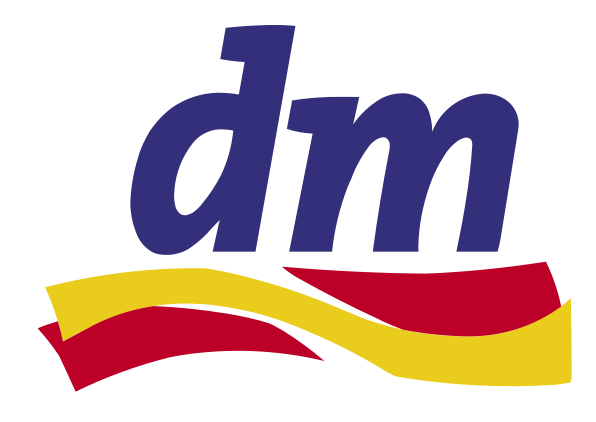
Industry : retail, droheri (household goods).
Dm started out as a regular Drogeri network (reminiscent of good old hardware stores). There were essential household goods: personal care products, cosmetics, laundry detergents, detergents, over-the-counter medications, and so on. Over time, dm increased the section of cosmetics and perfumery, added a section of healthy food and products for children. As a result, in this network you can buy almost all the products of frequent consumption, with the exception of food.
Brand values
: cozy shops within walking distance with good service, assortment and atmosphere. Shopping as a process.
Reasons for success
: Network retail in Russia is developing, after all, and the emergence of new niches is not far off. Sometimes in the campaign for toothpaste or laundry detergent, we have to stand in long lines in the wake of buyers buying for the whole week. In Droheri it is convenient and quick to buy, and in dm it is also to do it in a pleasant atmosphere.
Website
: http: //www.dm-drogeriemarkt.de
Branch: food, dairy products.
Müller is the company most similar in its principles, strategy and product range to those consumer firms that are successful in the Russian market. The company produces premium dairy products: yoghurts, curds, and even Russian kefir (I talked about this in 2008). But the main products are specially developed varieties of fruit milk, a refreshing, light and healthy drink:
Brand values
: tasty and healthy products from a German family business. Convenient packaging and choice for every taste.
Reasons for success : Although the dairy market in Russia is extremely saturated, the category of fruit milk drinks has not yet been created. These drinks are lighter than yogurts and not so high in calories, due to the trend of healthy and light food Müller is destined to success.
Website : http: //www.muellermilch.de/ ChioIndustry: food, snacks and snacks.
Chio is a fairly successful brand in the chips market, which did not allow Lays to go to Germany in its time, and today it is struggling to fight Pringles in a high price segment. Chio managed to establish excellent relations with network retail, first of all, premium, therefore the market share of these chips is quite substantial.
In the line of chips, Mexican tortillas are very strongly represented by basic tastes, to which Chio even specially produces sauces and brushes. This predetermined the brand image - Chio is the leader among Mexican chips and is absolutely not perceived as a German brand.
Brand values : aggressive, sometimes even hooligan character (listen to the starting melody on the site), American-Mexican image, a wide range, high quality products.
Reasons for success : It will not be easy to defeat Prinles and Lays, but it makes sense to fight them in the category of Mexican chips (tortilla). According to the latest data, this segment has already grown by 18% in 2 years, and in the coming years it will continue to grow faster than regular chips.
LidlIndustry: retail, discounter format.
Lidl over the past few years is the fastest growing German network in terms of turnover, and this is despite the fact that the discounter market itself keeps at a stagnant level and sometimes even gives way to premium networks.
Lidl's success is in the right balance between branded products and its own brands: networks manage to keep about 60% of their brands, while the remaining 40% are given to large brands. Due to the fact that all products are interleaved, consumers build confidence in private labels as well.
Brand values : quality products at the lowest prices, including well-known brands. Shop for those who buy for the whole family and for a few days. Affordable and convenient.
Reasons for success : Lidl is very successful in Eastern Europe, and develops with huge strides. In Russia, the store is ideally suited to regional centers, in which there are no problems with the building area, and there is still a demand for convenient shopping with good service and low prices.
Stiftung Warentest
Industry: services.
Stiftung Warentest, or in abbreviated form StiWa, is an independent organization that evaluates products in one category, gives them an official rating and places them.
Financial services.
DKB is a German credit bank with no real offices and operating only online. Due to this, he offers cheap rates for loans, and gives credit cards right and left completely free of charge, and even pays for new customers (your humble servant received 50 euros as a compliment for applying for a free Visa card).
The main feature: the free use of most ATMs and free ATMs around the world !!!
Brand values : cheap and convenient online banking.
Reasons for success : the Russian banking business has not yet reached the level that exists in Germany, and therefore it is quite possible to come to the Internet banking market and occupy a whole niche.
Especially for those who want to buy foreign, the Russian entrepreneur offers “European quality at affordable prices” - products with beautiful foreign names. The people take: the foreign will be all the prettier than ours. So...
No shoe master Carlo pazolini does not exist and never existed. Sounds, of course, beautiful. Wears the ears of every woman who lives with a firm and just conviction that the best shoes in the world are Italian. Carlo pazolini group - This is the name of a Russian company that has its own shoe factories in Russia and China and a network of branded stores.
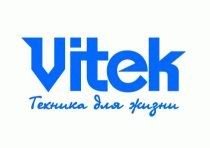
President of Golder Electronics and Brand Owner Vitek Andrei Derevyanchenko at the start of his career combined the sale of equipment with the work of a security guard. Five years ago, he registered the trademark Vitek in Austria. The name comes from the words vita (in Latin - life) and tech (in the sense of - technology). Contrary to popular belief, there is no Vitka in the business of a company of the same name. Place of registration allows Vitek to write on the boxes "Manufacturer: Austria". Technique of Mr. Derevyanchenko was originally positioned as a quality product at a price 10-15% cheaper than similar, but well-known brands. However, later the company could afford to acquire its own design bureau to develop unique models of technology. Now Mr. Derevyanchenko is proud of the teapot that was developed this year, flashing red lights around the perimeter and luminous blue neon light.

Together with Derevyanchenko began and Eugene Nazarov, the founder of the less well-known brand of household appliances Vigor (formed from English vigorous - courageous, strong), it is registered in Hungary. In Moscow, Vigor's office is located in a room where 20 people are sitting rented from the Vympel plant, there are all models of household appliances and it smells like borsch from the factory canteen.
Alexander Nazarov, the commercial director of Vigor, does not hide the fact that all the household appliances of them, like any other Russian company, are bought in the countries of Southeast Asia, assembled at the same factories and often not just look the same, but the same. “We come to the factories, see what they offer us, choose the models we like and agree on the price for which they put the name of our brand on the teapot,” he says. “It makes no sense to develop your own design: expensive, and stolen. "

The Scarlett trademark (owned by Arima Holding Corp., the joint brainchild of Chinese and Russians), the manufacturer of the most popular teapots in Russia, was registered in England in 1996 and named after Scarlett O "Hara Hamilton Kennedy Butler. Because the target audience was seen by the founders of the brand mostly female, economic, but not alien to the classics of literature and romance.

Rolsen - a brand invented in 1995 by MIPT graduate Sergei Belousov - is used for televisions, home theaters, monitors, mobile phones and washing machines. But Rolsen never exchanged his name for irons. The company began with the assembly of LG TVs, and now it produces its own at the factory in Fryazino (details are purchased in Southeast Asia). Recently, the most successful in Rolsen sold monitors and televisions, which it produces 150 thousand and 240 thousand units per year, respectively. At the same factory in the Moscow suburb of Fryazino, all 20, 21, and 25-inch LG TVs sold in Russia are made.

The Kaiser trademark, which has been operating in the market as a German company since the mid-90s and invented by the founding father Pavel Loginov, does not even bother to change. This brand successfully fills the market with large-sized kitchen appliances. Her mister Loginov does on the same factory in Poland which lets out and production under mark Hansa.
The brands Techno, Trony and Elenberg are also never Western. They belong to large retail chains Tekhnosila, Mir and Eldorado, respectively. They are present only in the stores of these networks. No Elenberg, say, in Technosila can be found.

But Bork, promoting itself as a German technician, is present in almost all stores, despite the fact that it is the brand of the Elektroflot network. But Bork has an advantage - a brutal very attractive design and an average price segment, while products under the three brands listed above are very cheap.

Milagro (miracle in Spanish) has been operating in the market since 1998 and specializes in instant coffee. Nikita Morev, director of the marketing company, says that when they first started to work, our buyer had more confidence in Western manufacturers of invigorating drink, so they had to resort to a foreign name. Milagro is made in Europe and Russia, the main office of the company is located in Germany.
Another company - Kaffa Industries, known in Russia for its instant coffee, has been working here for only three years. Its name is invented, as is the name of the type of coffee Kaffa Elgresso (Kaffa is the name of the province in Eastern Africa, where, according to legend, the first drink of coffee appeared, and elgresso is just a beautiful, invented word that means nothing). Kaffa produces coffee in two factories in the Moscow region.

Brands Greenfield, Tess, Jardin belong to the St. Petersburg company Orimi Trade, and Curtis & Patridge to the manufacturer May. “The buyer wants to believe that the brand he chooses is made from the unique water of the world's only lost glacier in the Pacific according to the accidentally discovered recipe of an extinct New Zealand Aboriginal tribe. And most importantly, he is willing to pay extra money for this, ”says Kirill Dubinsky, director of strategic planning and business development at the Aurora creative agency.
Greenfield tea is positioned in the premium price segment as manufactured by order and under the control of Greenfield Tea Ltd., which was established on August 10, 2003 in the UK by St. Petersburg tea producer Orimi Trade. Within a couple of weeks, its products appeared on the Russian market. The packaging shows sites with UK domains and London addresses. However, information about the history of the company is not indicated.

Curtis & Patridge tea (manufacturer - Mai Company)

Famous brand Faberlic began in 1997 and was called "Russian line". Prior to that, its founders, graduates of Moscow State University, Aleksey Nechaev and Alexander Davankov, were trading in the securities market. Then he tried to produce bio-additives and household chemicals, but in the end decided to do makeup. At first, the company even wanted to play on the fact that it is Russian. But research has shown paradoxical things. On the one hand, our women value Russian cosmetics for naturalness. On the other hand, they want to see stylish packaging with a cosmopolitan name on their dressing table.
A new word for the "Russian line" invented a whole year. As a result, they decided to synthesize the words faber (master) and "face" (lic). Both for the foreign and for the Russian ear, the word is new, and according to the idea of the manufacturer, it should cause the buyer to associate with the world famous Faberge.
This year, Faberlic specifically conducted a survey among its customers, with the help of which it found out that 30% take it for the Russian manufacturer, 29% for the foreign one, and 24% believe that it is a joint production. In fact, they make cosmetics at two factories - in Balashikha and the Moscow region, using, by the way, raw materials and the developments of foreign firms.
![]()
Sela clothing chain, being a Russian brand, does not fundamentally translate its slogan Feel The Same, which is already 10 years old, into Russian, almost as much as the network itself. At the very beginning, when entering the regions, franchisees told their first customers that these were Israeli clothes. Whereas in fact it is produced in St. Petersburg.
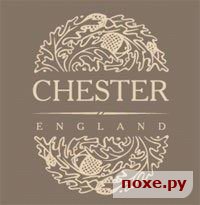
TJ Collection, which, according to press releases, "was created in the UK in 1992," produces shoes under three brands: TJ Collection, Chester and Carnaby. All of them are produced, again judging by the press releases, on "family shoe factories of Italy and Spain using manual labor." Everything was thought out to the smallest detail. Each brand has its own target audience. TJ CollectionChesterCarnaby - youth. Only one thing surprised buyers - when they went on business or on vacation to England, tried to find a store of their favorite brand, nothing came of it. fashion watches are bought by middle class women; - lovers of good classic shoes;

Rostov businessman Vladimir Melnikov sews jeans, denim clothing, children's and adult knitwear in Rostov and nowhere else. He is very proud of the success of his enterprise and generally stands for domestic producers. Nevertheless, his two brands are called Gloria Jeans and Gee Jey. Although it is worth emphasizing that the origin of the company has never been hidden, and quite the contrary - it was strongly emphasized.
![]()
St. Petersburg-based Avgust Plus produces and sells women's clothing under the Oggi trademark - very restrained and simple, but, on the other hand, fashionable and elegant. Therefore, teachers, financiers and other strict women, who cannot really experiment with style, love to buy it. The word oggi is Italian (“Today”), so that the majority of customers consider the brand to be Italian.
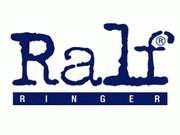
Ralf Ringer shoes are traditionally considered to be either German or Austrian. But, in fact, it is produced in factories in Moscow, Vladimir and Zaraisk. At the same time, company executives eagerly give interviews to various business publications, enthusiastically speaking about our origins and how they develop production and modernize factories.
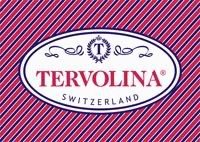
The Tervolina shoe network also does not hide the place of production: they sew shoes in Togliatti, at the factory "Leader". And they did not deliberately invent the name Tervolina, it remained from the time when the company did not sew its shoes, but imported them from the Czech Republic and Hungary.
Camelot, the brand of ultramodern youth shoes, is also ours. The history of Camelot began in 1996 with the opening of a small store, where the collections of Grinders, Dr. Martens, Shellys, etc. were presented. But not everyone could afford these shoes because of the high price. Since 1999, almost the same shoes have appeared, but not made in Britain and the USA, but in Poland and China under the control of a Russian company. Consequently, accessible to young people.
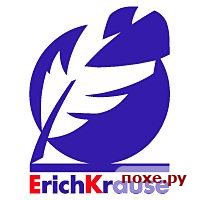
As the survey data of respondents show, the Germans have such qualities as pedantry, punctuality and accuracy. Therefore, it is logical to focus on the German quality, producing stationery, which is what the Russian company Erich Krauser is doing in Russia.
Also the so-called "foreign" brands are:
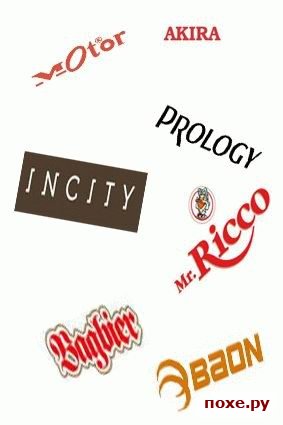
Akira, Binatone, Polar equipment, Prology car audio-video equipment, Frau Schmidt household chemicals, Motor jeans, Baon clothes, BeFree, Incity, Jardin coffee, Maitre de Thé tea, Mr.Ricco mayonnaise, Altstein beer and Bagbier and countless others .
Tea is a stylish drink, and this means that it may well become a fashionable trend, as evidenced by the appearance on the market of some new brands that give consumers the novelty of sensations and tastes. All this is true, and yet true gourmets and tea connoisseurs prefer only those brands and tea houses that are time-tested, and the quality of which they can trust unconditionally. Today we will talk about the best European tea brands with a rich history and traditions.
Ireland is a country of hardcore tea lovers, whom Barry’s helps them to enjoy is a tea house, founded in 1901 and located in the second largest Irish city of Cork. The best European tea brands for gourmets and connoisseurs. The best European tea brands for gourmets and connoisseurs. Five generations of the Barry family have been producing and selling tea, offering lovers the best teas grown in Ceylon, Kenya and Assam, the tea region of India.
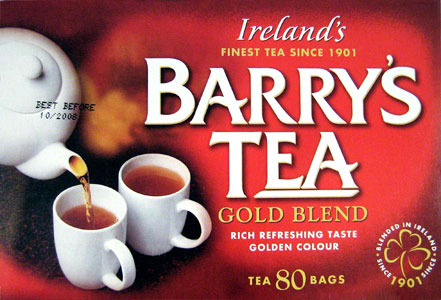
True connoisseurs of English tea believe that the varieties offered by Barry’s are best suited for drinking tea with milk, without which this drink is almost unthinkable for the English. Barry’s has several dozen different varieties of both leaf and teabags. Barry’s often hosts various contests and parties for its customers. The brand did not stay aside from such a significant event as the release of a new version of Alice in Wonderland to give everyone the opportunity to experience the color of tea drinking in a company with Mad Hatter.
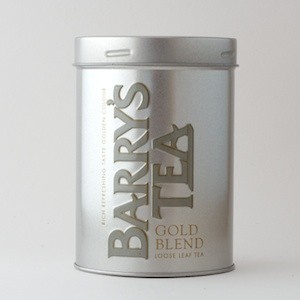
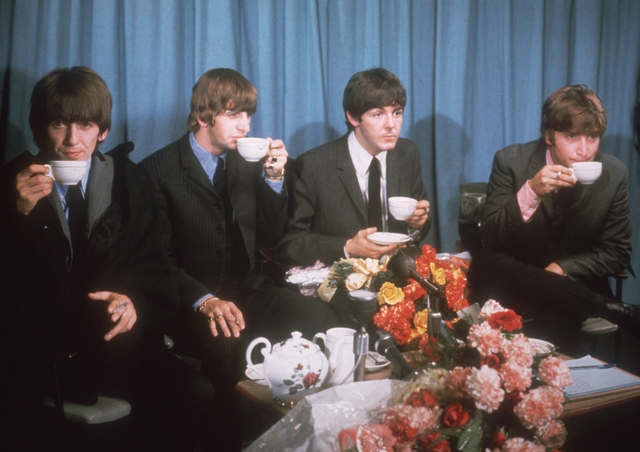
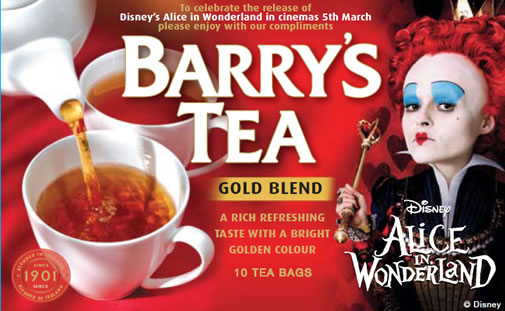
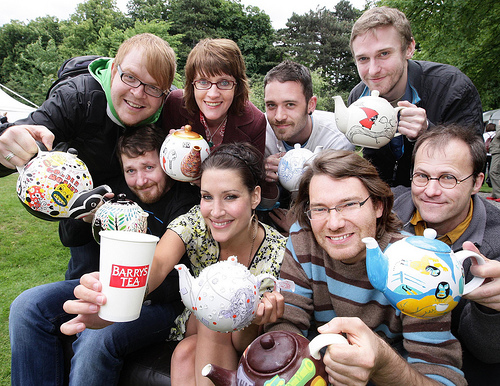
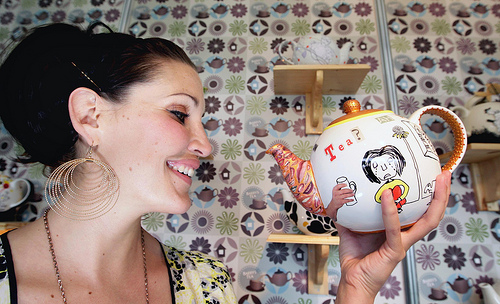
In 1886, by opening his shop and confectionery at the Place de la Madeleine in Paris, August Fauchon quickly gained fame as one of the best gastronomic brands in France.
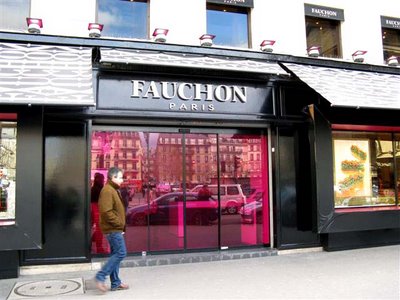
If you look into the tea department of the Fauchon brand store, you will find here about 60 items of tea, which can be purchased both by weight and in branded jars and bags. You can buy varieties from Fashon from the best tea plantations in the world, some flavored tea blends are exclusive, for example, Kee-Yu blend, Jungpana tea with rich peach flavor is also bought here, and Darjeeling tea lovers go shopping. ". Having made a purchase, you can enjoy an unusual dessert for a cup of tea in a cafe at the store. Every day, in the Fauchon store, there is a tasting of some new tea, for those who have time and often happens in Paris, there is an opportunity to try not one variety of elite tea.
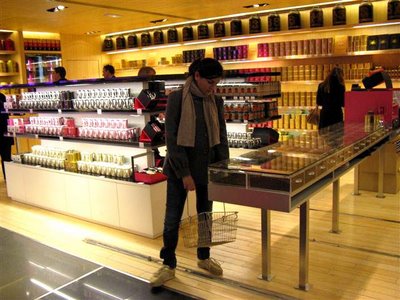
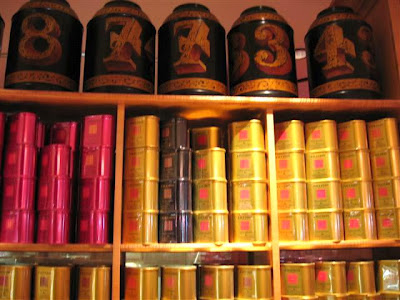
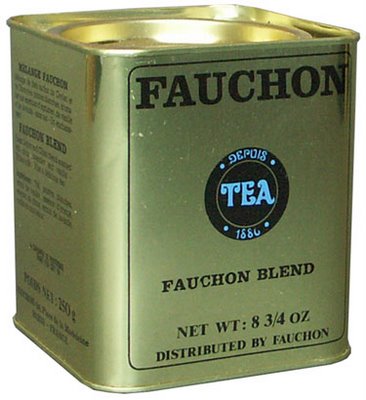
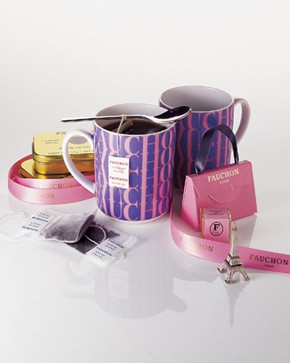
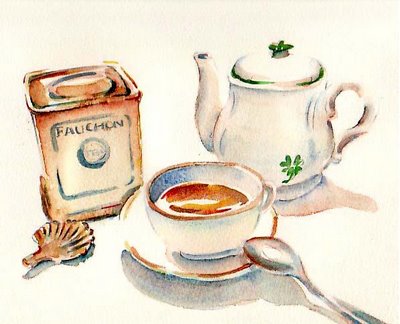
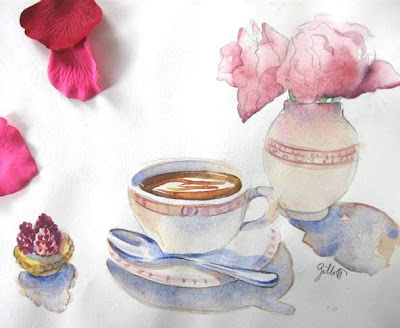
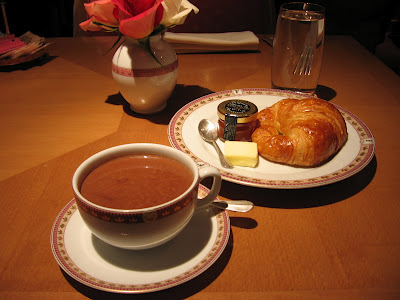
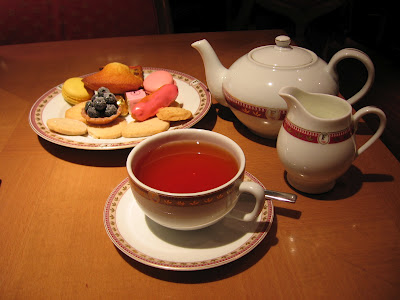
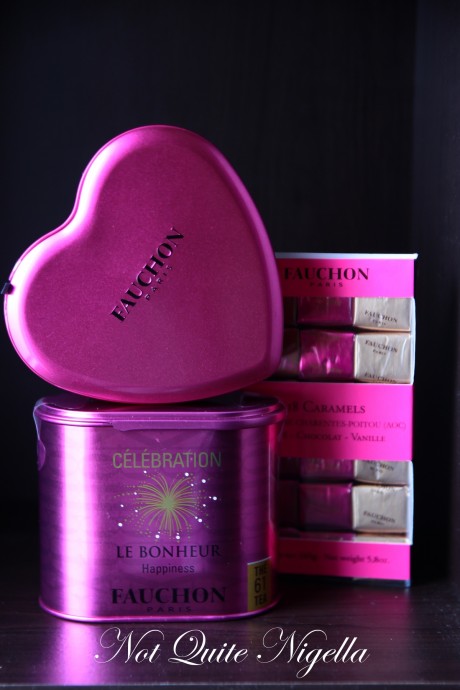
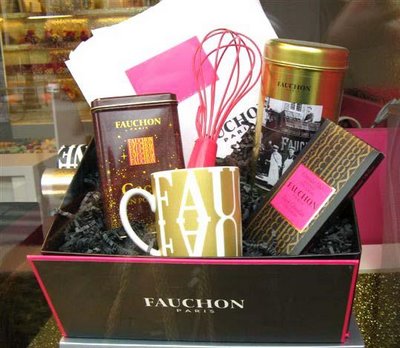
Kusmi
Particular attention among the elite tea houses in Europe deserves the brand, founded by our compatriot Pavel Mikhailovich Kuzmichev in 1867 in St. Petersburg. Within a very short time, Kuzmichev became the main Russian supplier of tea, including supplies for the Russian imperial court. The best European tea brands for gourmets and connoisseurs. After the October Revolution of 1917, Kuzmichev was forced to leave Russia and settle in Paris, where he opened a tea house, which now bears his name and is very popular.
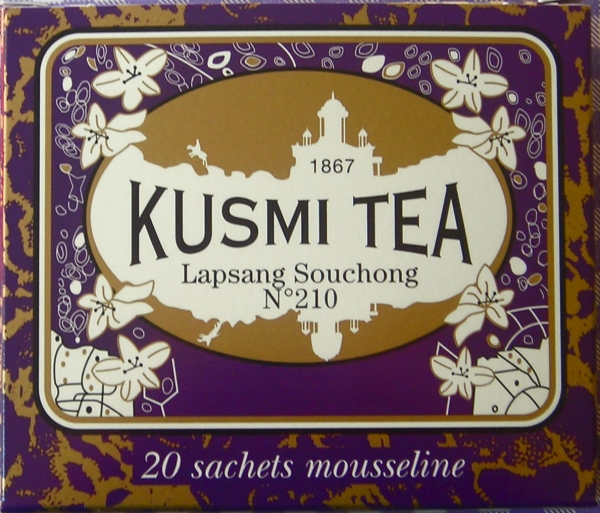
The Kusmi brand is one of the best tea houses in Europe. Kusmi offers surprisingly fragrant tea of both classic varieties of black, green, red and white, as well as herbal, fruit mixes and even exotic with lotus flowers and algae. For flavored varieties only natural supplements are used, which are imported from Madagascar, Calabria and Grass. Many tea varieties are made according to original recipes from the beginning of the last century and bear the poetic names of Prince Vladimir, Anastasia, Troika, Samovar, Traktir, St. Petersburg. A tea "Zubrovka" is made up of a mixture of Chinese tea with a taste of the so-called bison grass. Tea is packed in small branded, very colorfully decorated boxes that look like small charming souvenirs. For almost 150 years, Kusmi Tea House has managed to maintain a high level of tea quality, and the glamorous packaging design is considered the most stylish not only in Europe, but also in the world.
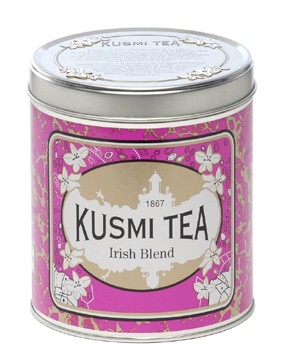
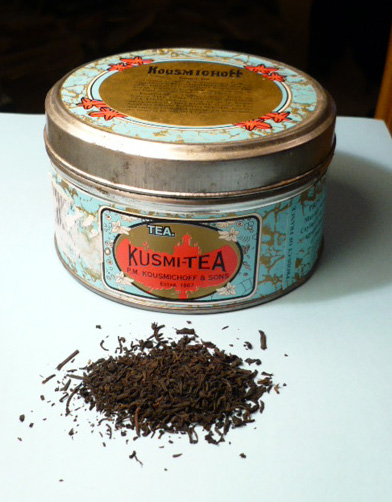
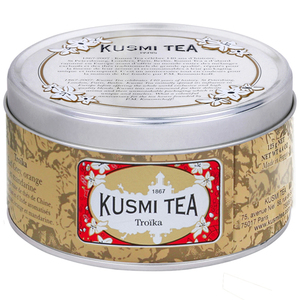
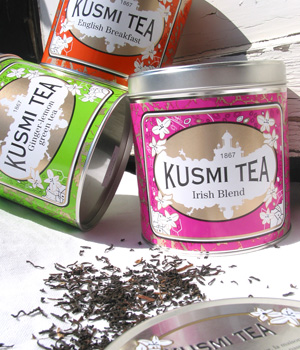
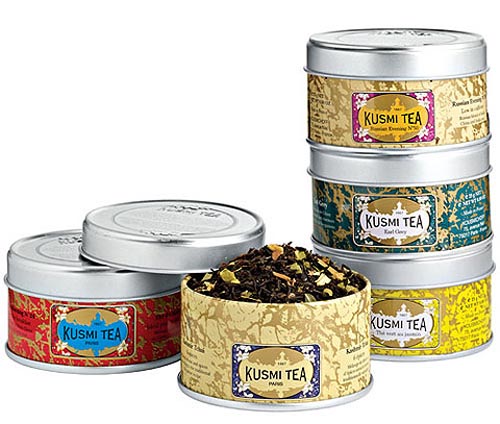
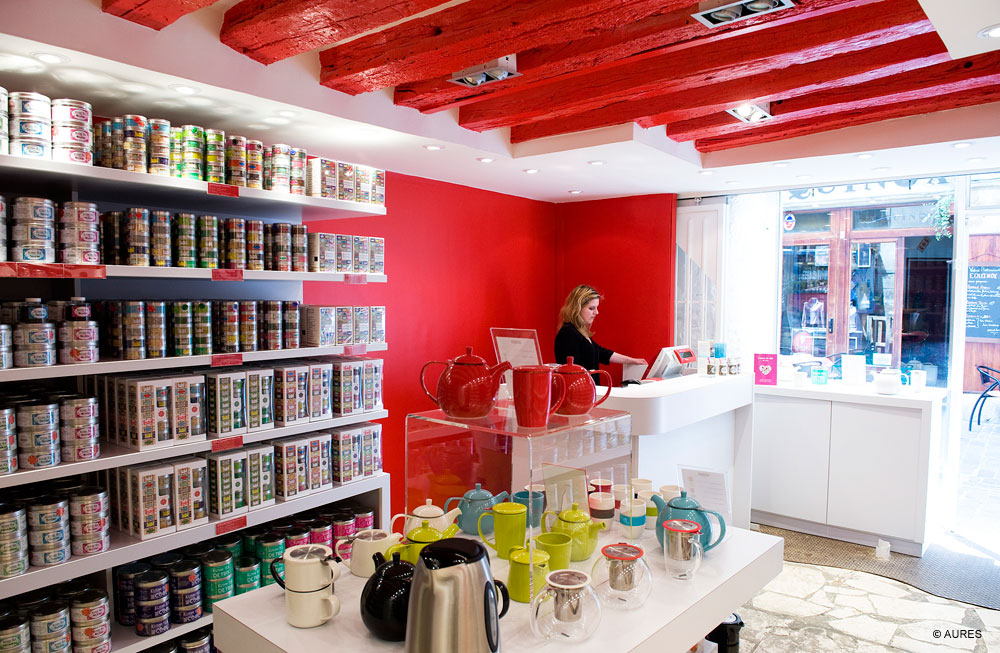
![]()
British tea house Fortnum and Mason offers tea that will satisfy even the most discerning connoisseurs and tea snobs. The best European tea brands for gourmets and connoisseurs. Since its founding in 1707, Fortnum and Mason has been the main supplier of tea for the English aristocracy.
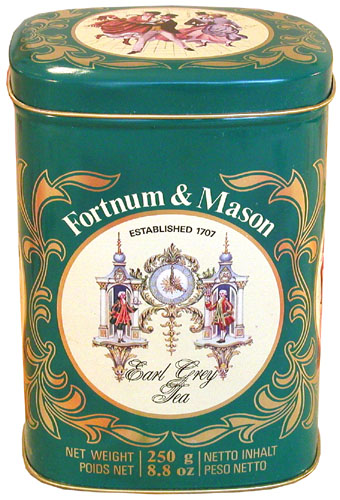
Every day, crowds of tourists from the British capital line up in a long line to get to the famous tea house Fortnum and Mason (almost like the famous Harrod’s department store), which is also known for its magnificent café. The British, French, Japanese, Germans and Chinese roam between the tea shelves filled with amazing jars of delicious teas grown on the plantations of India, Ceylon and China and which can only be bought here in this Piccadilly shop. Such exclusivity makes this place a legendary one and deserves a visit by any tea fan. And after the purchase you can taste the dessert with a cup of tea in a cafe. By the way, when there are Japanese and Chinese here, they usually ask for the tea that Queen Elizabeth II prefers. It is said that Her Majesty likes “Earl Gray”, to which she is served biscuits. Fortnum and Mason branded tea is considered Fort Mason, a special blend with orange blossom. This is a very strong and unique drink, which you may not like from the first time, but you should definitely try it again, it is worth giving it up only after the third attempt.
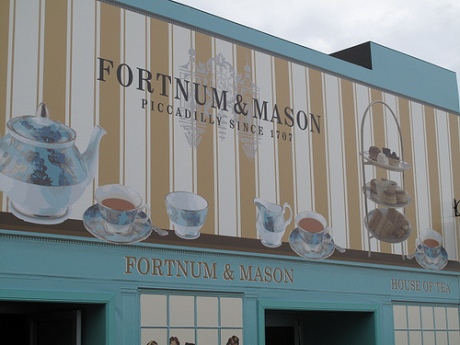
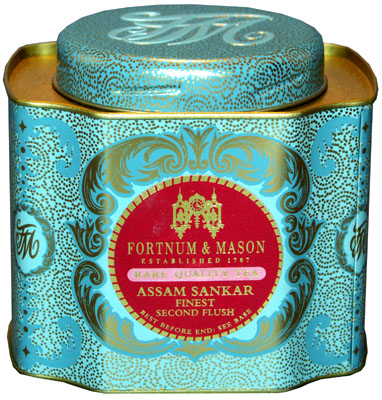
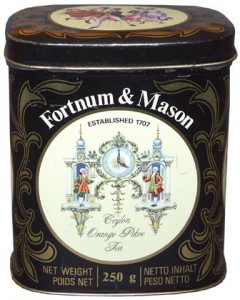
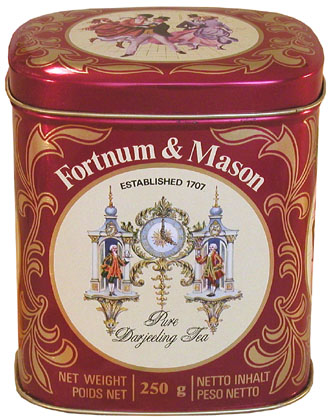
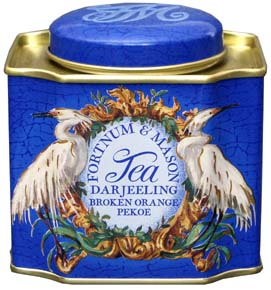
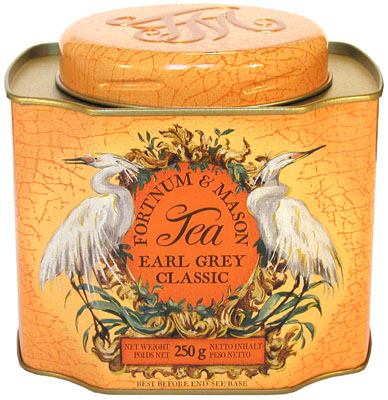
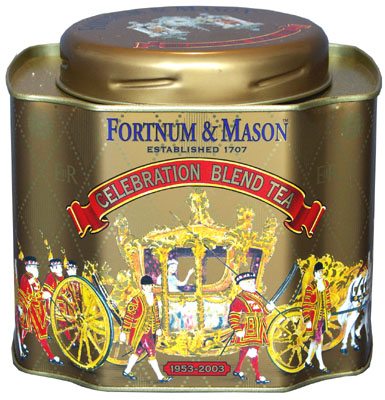
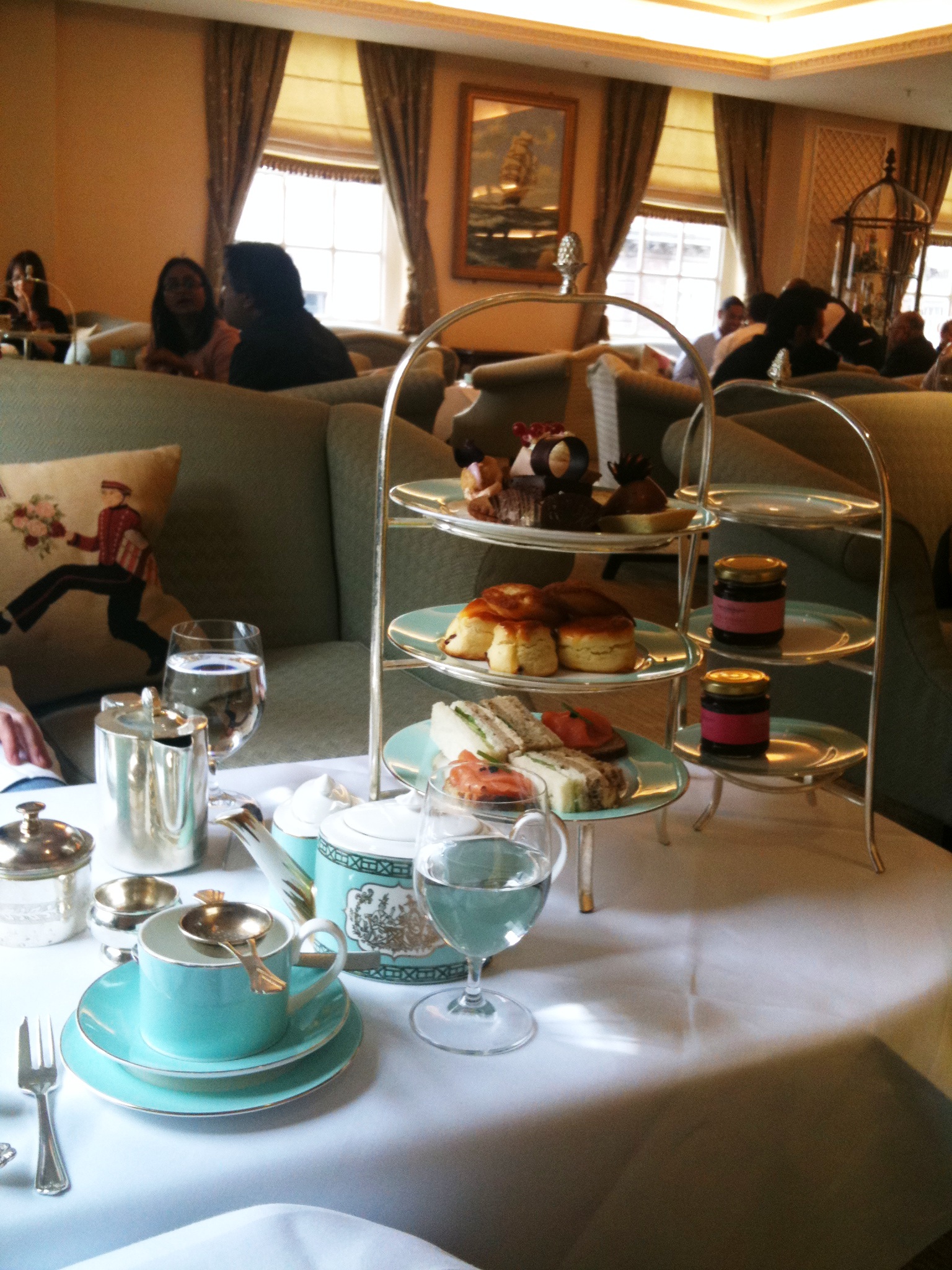
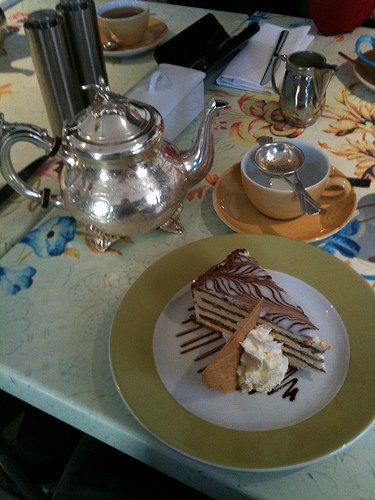
In Germany, the tea house is very much appreciated. ”J. Eilles ”, founded in 1873 by Joseph Eilles (Joseph Eilles), who is considered the ancestor of the Munich culture of tea drinking. Joseph Aylles received the royal permission and became the supplier of the entire Bavarian aristocracy, and also formed an excellent and very demanding taste from his compatriots.
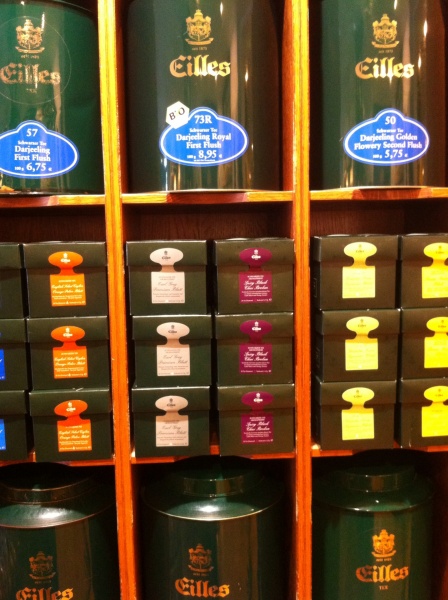
The founder's philosophy still remains indisputable and is not subject to revision. In the company store, opened in 1927 at the Residence-Strasse in Munich, directly opposite the building of the Bavarian National Opera, you can buy unique teas grown on the best plantations of the world - black varieties from the Himalayas, Ceylon, China, Indonesia and East Africa, as well as the best blends of green Japanese tea.
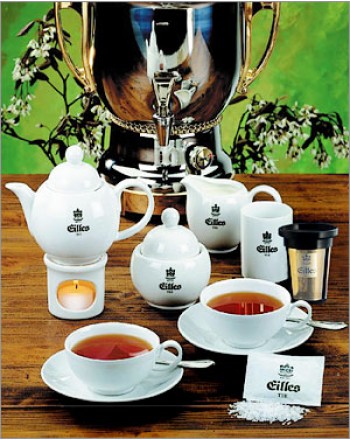
![]()

The Parisian tea house "Betjeman and Barton" was founded in 1919 in strict accordance with British traditions, but with elements of French style. Every day, visitors to the corporate store on Malesherb Boulevard have the opportunity to taste at least 200 varieties packed in bright containers.
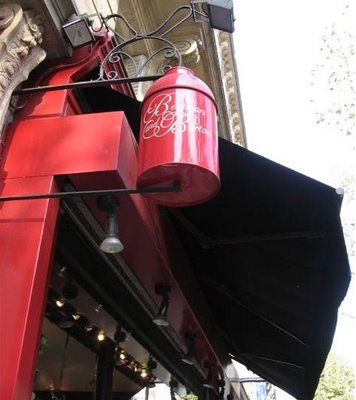
In Paris “Betjeman and Barton” there are varieties that cannot be found anywhere else, for example, Prince Charles has a weakness for tea with the aroma of bergamot and citrus fruits called “Pouchine”, which is delivered to him from Paris. Here tea lovers can also get unique accessories - a collection of Chinese tea cans and boxes made from rare woods, tea strainer, tea spoons and more. In addition to desserts, rare tea jellies belong to the culinary delights of the tea house.
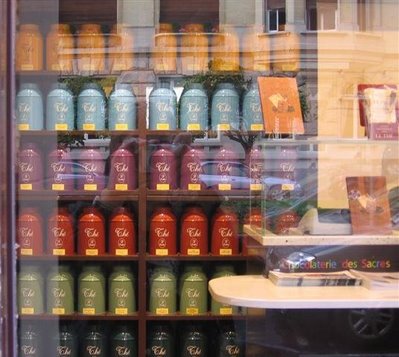
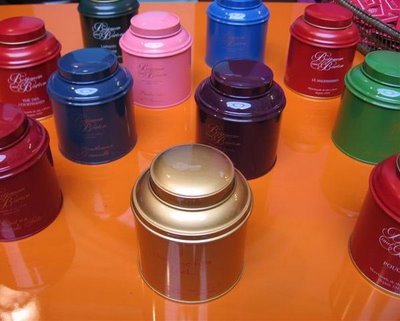
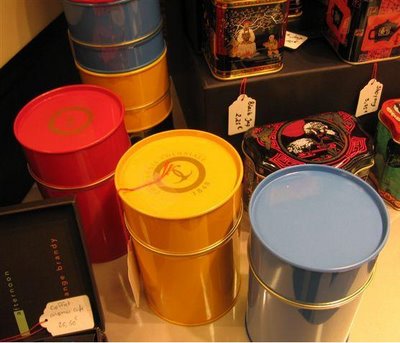
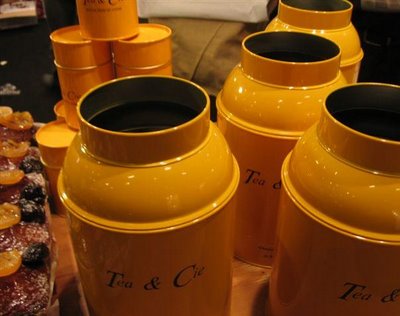
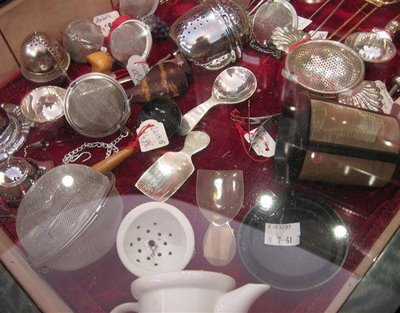
The tea house Mariage Frères with its rich history can be called the French response to the British home Fortnum & Mason. At about the same time (about 1850), when Louis Vuitton released his first legendary suitcase, then the brothers Henri and Edouard Mariage began to import tea to France.
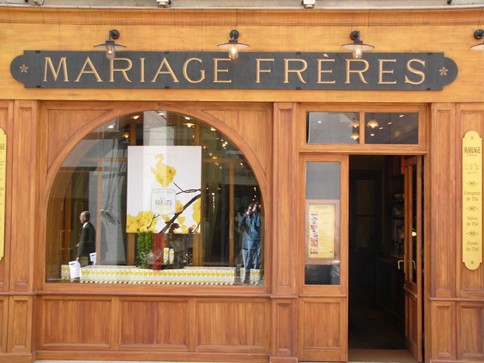
The historic building of the brand store in the fourth administrative district of Paris with a small museum attracts tea admirers from around the world. Celebrities such as Elton John, Hugh Grant and Madonna have been here. When you first visit the store, when you are standing in front of a counter with 400 varieties of tea, you may feel a little dizzy, and by asking for Earl Gray, you may be confused if you are asked which of the 60 Earl Gray varieties you prefer. At Mariage Frères, visitors are offered their own blends, especially flavored green and white teas. One of the first was a tea blend called “Marco Polo”, it was created by the current president of the company Kitti Cha Sangmanee, who came to Paris from Thailand as a very young man and entered the tea house for service. His interest in business and the excellent knowledge of tea prompted the heiress - granddaughter Henri Mariage Martha - to entrust him with a high post. The skill of Sangmani is so great that many tea companies, trying to reproduce his compositions, were able to get only what is comparable to a copy of the artist's picture printed on Xerox.
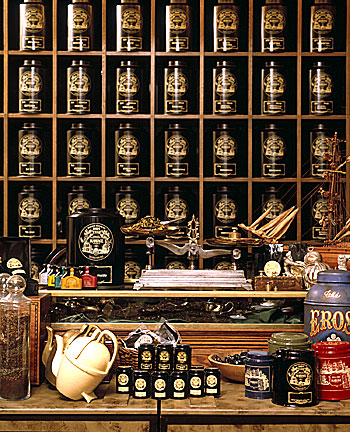
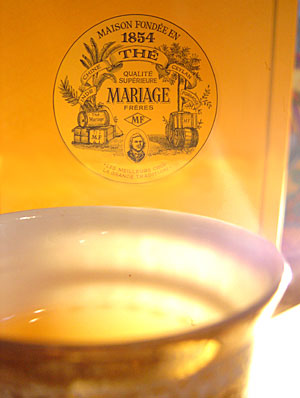
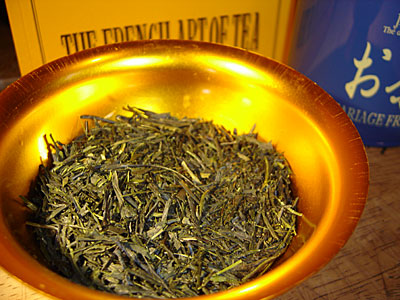
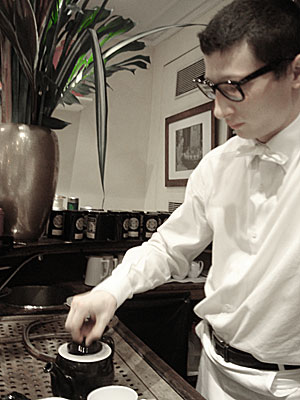
Concluding the story about the best tea houses in Europe, we hope that when you go on a trip to these cities, you will find the opportunity to look into the brand shops and bring home some surprisingly rare or favorite tea.
The material is presented by the Company “TIGRATE” - the leading Russian company, an expert in the tea market.
- How to understand which product characteristics to emphasize in a unique sales offer
- Creating a unique selling proposition: how often to update UTP
- Examples of a unique selling proposition: what should be put in the basis if the products are no different from the offers of competitors
Unique selling proposition we still have to consider it quite a young phenomenon, which began to be used in Russian business since the beginning of the 2000s, when brands began to enter the market.
We have to admit that with a lot of talk about this issue, few are actually involved in the development of USP. Most companies in Russia do not have a clear understanding of their target audience; as a result, they are aimed at everyone.
Without the ability to differ from its competitors, without the skills to highlight the features of its offer to customers, the company will have to limit itself to a rather modest flow of customers and sales.
Algorithm to develop the right UTP
First step. Collection of primary information. It is necessary to create a table in which the characteristics of the products and competitive advantages for the client, which he gets through cooperation with your company, will be indicated. Experience confirms - the more it is written, the better. You will be able to write 15 competitive characteristics - excellent, 20 - even better. In this case, it is necessary to describe all the benefits and advantages for customers, albeit insignificant. After specifying your advantages, you should cross out the benefits that your competitors can offer. Our goal is to find and offer competitors the advantages that only we have.
The second step. Checking the relevance of benefits.
- Query statistics in the search engine. Each of the selected benefits should be verified using a search query — to understand how often potential clients try to find a solution to a similar problem.
- Feedback cards. For loyal customers, you can suggest filling out feedback cards, highlighting the most important benefits.
- Open question. If it was not possible to achieve clear results due to the comparison of its advantages with the benefits offered by competitors, employees of the commercial service and marketing specialists should be asked to ask loyal customers the question - “Why do you prefer to work with us?”. Quite a variety of answers may come in at the exit, but the most common ones can be used for your TSS.
- Sales analysis. This method was used to compile a unique trade offer of a garment factory. The head of the sales department noted the high demand for women's clothing of large sizes and clothing for complete compared to other positions in the assortment of the enterprise. This information formed the basis of a unique sales offer: “Clothes for obese women. Thanks to a special cut, our dresses allow us to hide the fullness and emphasize the beauty of the figure - all your femininity. ” This text was chosen for an advertisement when published in newspapers, magazines and other media. Over time, it was possible to confirm the excellent dynamics of the overall increase in the number of sales.
The third step. Testing USP.
- Dividing your customers into groups on a random basis, sending different types of messages for each group.
- Placement of contextual advertising, based on various types of unique sales offers. The main option is the UTP, which helped to achieve the maximum number of responses.
3 conditions for creating a unique sales offer
To form a unique sales proposition, three conditions must be considered:
The first condition - emphasize the uniqueness of your product.Quite a difficult question for many. In particular, how to emphasize the uniqueness of the standard washing powder? But in reality, one can note the many characteristics of their product, attracting the attention of the target audience - including:
- Useful additional service. "Buyers of goods for any amount provided free delivery in the city." Or, jewelry stores offer “to add to the database every date so that the buyer does not forget to congratulate his beloved”.
- Polite and efficient staff. Probably, many have met such announcements - “we will wash the car in 20 minutes or we will return your money”, “only polite and sober loaders”.
- Narrow specialization - "store elite alcoholic beverages" or "rock karaoke bar."
- The focus of the company on a specific category of customers. "A toy store for girls."
- Leading market position. "The largest selection of automotive components in the city." At the same time, it is important that the statement in the UTP correspond to reality - in order to avoid negative consequences for the company's reputation.
- Elitism - for example, a commercial photographer in his UTP may indicate "shooting in luxurious interiors with expensive items."
- High score. "85 of our students are employed within 3 months."
- Providing customers with guarantees. Including refund or free service for a specific period. Returns in any case will be, but for the most part they turn out to be isolated cases. If there is no opportunity to comply with this promise, it is better to change your unique selling proposition.
- Ask about what your customers need. In particular, you can think about the survey, or a study on finding the most interesting for the target audience UTP.
- The TSS should be directed not at the users themselves, but at the decision makers.
- Compare your services or products with competitors. For example, one of the washing powders gained its fame thanks to the motto “If there is no difference, then why pay more?”.
- Reduce the cost to a negligible amount. For example, “advertising in our newspaper - 600 p. per month. It comes out advertising three times a week - 12 times a month. Therefore, one publication will cost only 50 p. 20 thousand subscribers will be able to see this ad - so pay only 0.25 kopecks per customer. ”
- Express value is not in financial equivalent. In particular, one of the coupon services sends offers to its customers - “give your beloved a festive bouquet of roses, a romantic evening and two movie tickets at the price of a tank of gasoline”.
False Unique Trading Offers
- Obvious promises. "If you do not like the goods, we promise to return the money for the purchase within 14 days." But such a promise cannot be considered a unique selling proposition, because it is a mandatory requirement under the law “On Protection of Consumer Rights”.
- Fictional advantage. Among the most vivid examples are “vegetable oil without cholesterol” (cholesterol can be contained only in fats of animal origin) and “salt without GMOs”.
- Opposition based on play on words. "Smoke Cool - give up hot cigarettes." Cool cigarettes are contrasted with other brands and are supposedly different in temperature characteristics. Just in the slogan, the main focus is on wordplay ( english cool - “cool, cool”).
The second condition is that the client must understand his own benefit. Specified in a unique offer of the property must meet the needs of the buyer. It is necessary to demonstrate visually what benefits the client will receive, noting other important qualities:
- Saving powder when washing. Rinsed easier, does not harm the skin.
- More washes for the same price.
- Compact powders are environmentally friendly, reducing the environmental impact.
The complex of advantages, if not limited to only one benefit, makes it possible to interest a wider target audience — those who want to save, who care about their skin, and those who are experiencing an environmental situation in the world.
- Commercial offer: samples and examples. 16 killers and amps everyone needs to know
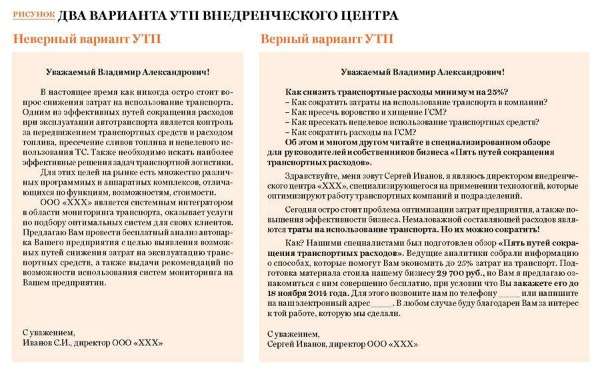
Says CEO
Evgeny Panteleev, General Director of the Freedom Cosmetic Association, Moscow
Our company is launching a new line of cosmetic products this year. UTP includes the principle of correlation of quality and price - the product is presented in the mass-market price category, and in terms of characteristics and composition, it more resembles products of leading world brands. Let us consider in more detail how such a UTP appeared in our cosmetic products.
In 2013, the company celebrated its 170th anniversary, and in preparation for such a significant date, it decided to send employees to participate in the major French exhibition In-Cosmetics. There we were able to meet with the heirs of the founder of our company, many hereditary perfumers. They introduced us to many representatives of French laboratories who specialize in new directions in the field of cosmetology, greatly helped us in the organization of negotiations. We were particularly interested in the development of the Soliance laboratory - its representatives offered us exclusive conditions for the supply of a component with a unique rejuvenating effect (hyaluronic acid microsphere). Already provided for the use of this component for the leading cosmetic products, including in the assortment of world famous brands YvesRocher, L’Oreal and Clarins.
In addition to the exclusive right to use this microsphere for our cosmetic line, we also managed to count on comprehensive methodological support from business partners from France. They assisted in the formation of new SKU, the scientific center of our company also created its own recipes. This approach allowed us to ensure the first UTP - the high quality of its products. There were also additional arguments in favor of our range - the results of testing the quality of competitors' products, which we organized at the research center. According to the results of the past study, we were able to confirm that our product is not inferior in its properties to more expensive counterparts.
Particular attention should be paid to the second component - cost. In the matter of price, our USP has a certain “immunity”. Since we have received from the French developer an exclusive opportunity to use his know-how - hyaluronic acid microsphere. Therefore, it is unlikely that someone from the Russian manufacturers will be able to compare with our prices, and foreign analogues are much more expensive.
Alexey Pyrin, General Director of the Artisifood Company, Moscow
We are engaged not only in production, but also in sales of fish and seafood. We make the main stake in our activity on the b2b sector. As a rule, wholesale suppliers of food products do not have a well-known, recognizable brand, so it turns out to be really difficult to stand out against the background of its competitors. We decided to take the factor of an extensive range as the basis for promoting our services. The vast majority of companies offer a little of everything, they can not deliver rare products. We managed to significantly expand the range of our services - about 200 kinds of seafood and fish, while informing our clients about various unusual products. Therefore, we managed to surpass our competitors in terms of UTP marginality by 8-10%.
The third condition is the significance of the promised benefits. We only have ten seconds to interest a potential customer. Therefore, with a more significant problem that we propose to solve to the client, with the most clear and accessible formulation of his proposal, it will be possible to make the brand more recognizable and known to potential clients. Actually, this rule is almost everywhere - the only complicated technique becomes an exception (as a rule, consumers carry out analysis and comparison of characteristics in advance).
In the FMCG market, one should determine the most significant property, which will be recorded in a unique sales proposal and on packaging. In particular, the packaging can be noted pleasant aroma of the product. Over time, this property has already begun to be taken for granted, so we moved on to the “effective removal of stains.” The characters of our commercials could get very dirty, but no dirt resisted the effects of powerful powder. As a result, we managed to achieve sales growth of more than 5 times over five years.
- Products own brand: for which buyers are ready to give their money
Whether your product’s unique sales offer is effective: three parameters to check
Ilya Piskulin, Director, Love Marketing Agency, Moscow
Try, for example, to create an “antonym” for your unique selling proposition.
1. Your unique selling proposition cannot be used by competitors.
If competitors repeat your offer, they will deceive the client. Somehow in my practice was the case. One of our companies started producing windows with a ventilation system. In a competing firm stated that their windows are also ventilated. We sent a secret customer to them and found that it is a question of valve ventilation, which only works at positive temperatures and is not installed in Russia. The company knew about this and therefore immediately warned customers that it was not worth buying ventilation windows. That is, the company attracted customers because it was not going to sell. Of course, buyers were disappointed. There was no other competitor who could repeat our USP and at the same time keep the promise.
Examples of UTP. The restaurant is the only one in the district that prepares meals on the grill or serves a business lunch for 20 minutes. The window manufacturing company is the only one among its own kind who does metal siding for a log. Production of road paint, which is highlighted in the dark. A development company may offer a lake on the territory of a holiday village or an already operating gas supply system in a new house.
If competitors repeat your offer, they will violate their positioning. I once witnessed the death of one grill bar. At first, he positioned himself as an extreme bar, but suddenly announced that he was starting to hold children's matinees on Sundays. The regulars were at a loss, and new customers (young mothers with children) did not dare to go to an incomprehensible institution. It is important that the UTP reflects exactly your positioning and does not suit the closest competitors.
Examples of UTP. If BMW had announced that it had produced the safest car, it would have puzzled motorists (safety is the usual attribute of Volvo). The announcement that the Chanson radio festival will be held at the Gipsy nightclub will sound similarly strange.
2. You can build the opposite UTP, and it will not seem absurd
Often, instead of UTP, people say things for granted about high quality, great value and a wide range. In my practice, there was a company that publicly declared that it had the most expensive apartments in the city. Sales were excellent (I note it was before the crisis). At the same time, there was another company on the market that claimed that it had the cheapest apartments. And they also sold well. Both UTP sounded good and worked. If the UTP does not have a working "antonym", then it will not be too effective. So, in my practice there was a cottage village, which sold the largest plots, measured in hectares. Unfortunately, there was no company on the market that sold the smallest plots, for example, 10 acres, because no one needs them anymore. Sales were not shaky or shaky ... You should not write in the club's advertising that he has great music (there is hardly a club with terrible music) or emphasize in the restaurant's advertising that there is delicious food and good service.
Examples of UTP. In the restaurant's advertising, it’s better instead of “located in a great place” to write “it’s on the roof, away from the city rush” (because you can say the opposite, “a restaurant in the very center of the city”, and this will also be a good UTP).
3. Your USP wants to believe
It happens that the USP is formulated either indistinctly, or incomprehensibly, or simply does not inspire confidence. Once we promoted lymphatic drainage massage, which, when properly applied, is able to create the effect of a small weight loss immediately after the session. It turned out that the slogan “losing weight in 1 hour” people did not really believe, unlike the slogan “losing weight in 1 day” (there were many times more clicks).
Example UTP. You should not promise "losing weight by 10 kilograms in 3 days," indicate a more realistic time frame.
Copying material without approval is permissible if there is a dofollow-link to this page.
New Articles
- What is the highest peak of the Ural Mountains
- The most ancient religions in the world
- What continents are washed by the Atlantic Ocean?
- Can I wear jewelry of the deceased?
- Snake, Bowl and Staff: The Origin of Medical Symbols
- Interesting facts about hares
- Names of famous brands in other countries
- Karelo Finnish epic kalevala protagonists
- 17 18 weeks pregnant sensations
- Why do people become so aggressive
Popular articles
- Expression twice in one river, meaning and meaning
- Gusli - musical instruments
- Report: Temperature Scales and Thermometers
- Which side to sew on chevron
- How to draw emblems for school
- Unusual rivers of the world and the rivers of Russia - Rivers with sour water
- Numb of the little finger on the right hand: causes and methods of treatment
- Why development is important for a person
- Constellations from ancient atlases
- What happens at 31 weeks
